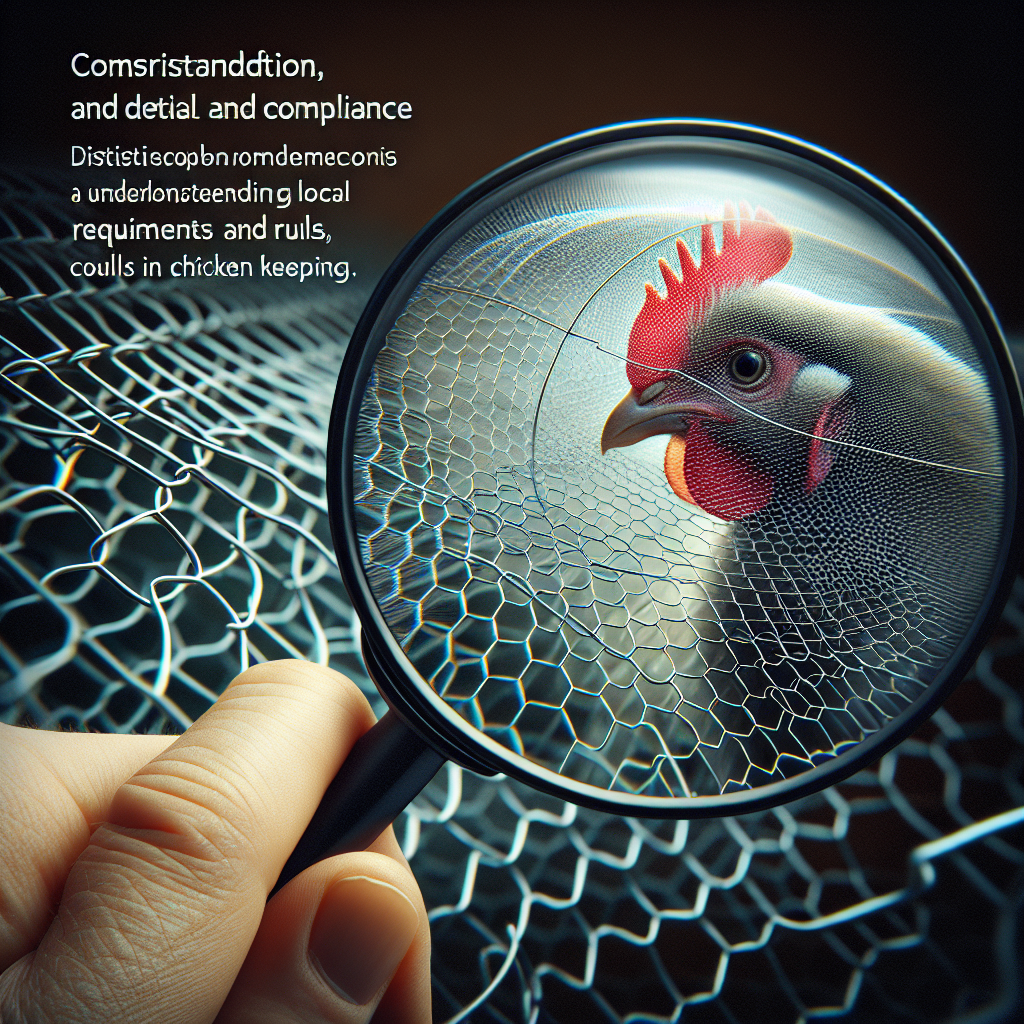Starting out with chicken keeping can be an exciting and rewarding venture. But before you dive headfirst into raising your own flock, it’s important to take the necessary first steps. From researching different breeds to considering the housing and equipment you’ll need, this article will guide you through the initial stages of starting your chicken-keeping journey. With a friendly tone and practical advice, you’ll be well-prepared to embark on this feathered adventure. So, let’s begin!
Choosing the Right Breed
When starting with chicken keeping, the first step is to consider your purpose. Are you planning to raise chickens for eggs, meat, or both? Different breeds have varying egg production levels, meat quality, and temperament, so it’s important to choose a breed that aligns with your goals. Additionally, think about the climate and space available on your property. Some breeds are better suited for colder climates, while others thrive in warmer regions. By taking these factors into account, you can narrow down your options and choose the right breed for your needs.
Preparing the Coop
Once you’ve decided on the breed, the next step is to prepare the coop. First, decide on the type of coop you want to build or purchase. Consider factors such as the number of chickens you plan to have and the available space. It’s essential to ensure sufficient space for your chickens to move around comfortably. A general guideline is to provide at least 4 square feet per chicken inside the coop and 10 square feet per chicken in the run. Additionally, good ventilation is crucial for maintaining a healthy environment. Install windows or vents to allow fresh air flow while keeping predators out. Lastly, don’t forget to include nesting boxes and roosts to provide a comfortable resting area for your chickens.
Setting Up a Chicken Run
In addition to the coop, setting up a chicken run is essential for the well-being of your flock. Designate a secure area where your chickens can freely roam and forage. Secure the space by installing fencing and gates to keep predators out and to prevent your chickens from wandering off. It’s also important to provide shelter and shade within the run. This can be in the form of a simple roof or trees that offer protection from the elements. A chicken run not only provides additional space for your chickens but also allows them to engage in natural behaviors, promoting their overall health and happiness.
Purchasing and Introducing Chickens
When it comes to purchasing chickens, it’s crucial to find reputable suppliers. Look for sellers who prioritize the health and well-being of their birds. Consider the age of the chickens you plan to bring home. Day-old chicks require special care and attention, while pullets (young female chickens) or fully grown hens may be a better option for beginners. When introducing new chickens to your flock, do so gradually. Quarantine new birds for a minimum of two weeks to ensure they are healthy and don’t introduce any diseases to the existing flock. Gradual introductions prevent aggression and allow the chickens to establish a pecking order in a less stressful manner.
Providing Basic Essentials
To ensure the well-being of your flock, it’s essential to provide them with their basic essentials. Clean water is vital for hydration, so make sure to provide fresh water daily. Chickens also require a balanced diet to stay healthy and lay eggs consistently. Offer them proper nutrition by providing a commercial feed formulated specifically for chickens. Additionally, chickens need grit and calcium for proper digestion and strong eggshells. You can offer commercial grit and crushed eggshells or oyster shells to meet their needs. Lastly, chickens enjoy dust bathing to keep their feathers clean and free from parasites. Create a designated area with fine sand or soil where they can indulge in this natural behavior.
Establishing a Routine
Creating a routine is beneficial for both you and your chickens. Maintain a regular feeding schedule to ensure they receive their required nutrients without any disruptions. Collecting eggs daily not only prevents them from being damaged or pecked but also reduces the risk of attracting pests. Cleaning the coop and run frequently is important to maintain a hygienic environment for your flock. Regular monitoring of your chickens’ health allows you to identify any signs of illness or distress early on and seek appropriate veterinary care if necessary. By establishing a routine, you create a sense of stability for your flock and promote their overall well-being.
Creating a Safe Environment
A safe and secure environment is essential for the protection of your chickens. Predators such as foxes, raccoons, and birds of prey pose a threat to your flock. Implement measures to protect your chickens, such as installing fences with small mesh size to prevent entry by ground-dwelling predators and covering the coop with wire mesh to deter flying predators. Secure the coop and run at night by locking all doors and windows to keep your chickens safe from nocturnal predators. Additionally, closely observe your chickens’ behavior to identify any signs of distress or stress that may indicate the presence of predators in the area. By creating a safe environment, you can ensure the well-being and longevity of your flock.
Educating Yourself about Chicken Care
As a chicken keeper, it’s important to continuously educate yourself about chicken care. Reading books and online resources provides valuable information on various topics like breed selection, housing, feeding, and general health care. Attending workshops and seminars conducted by experienced poultry keepers or agricultural authorities can enhance your knowledge and provide hands-on learning opportunities. Joining online communities or forums allows you to connect with like-minded individuals who share a passion for chicken keeping. These platforms provide a space for asking questions, sharing experiences, and gaining insights from experienced chicken keepers around the world.
Seeking Professional Help When Needed
In certain situations, it may be necessary to seek professional help. Consulting a veterinarian who specializes in poultry health can provide expert guidance on matters such as vaccinations, disease prevention, and treatment. Veterinarians can also help address any health concerns or issues that arise within your flock. Engaging with experienced chicken keepers is another valuable resource. They can offer practical advice, share personal experiences, and provide support and guidance throughout your chicken keeping journey. By seeking professional help when needed, you can ensure the well-being of your flock and address any challenges that may arise.
Enjoying the Benefits of Chicken Keeping
Once you have established your chicken keeping routine and provided a safe and nurturing environment for your flock, you can begin enjoying the benefits. Fresh eggs are one of the most rewarding aspects of chicken keeping. Imagine waking up each morning to collect fresh eggs from your own chickens, knowing exactly where they come from and how they were raised. In addition to the eggs, chickens also provide natural pest control by consuming insects and weeds in your garden. This helps reduce the need for chemical pesticides and promotes a healthier, more sustainable environment. Lastly, chicken keeping allows you to foster a connection with nature by observing and caring for these fascinating creatures. It’s a fulfilling and enriching experience that brings joy and a sense of fulfillment to many chicken keepers around the world.




